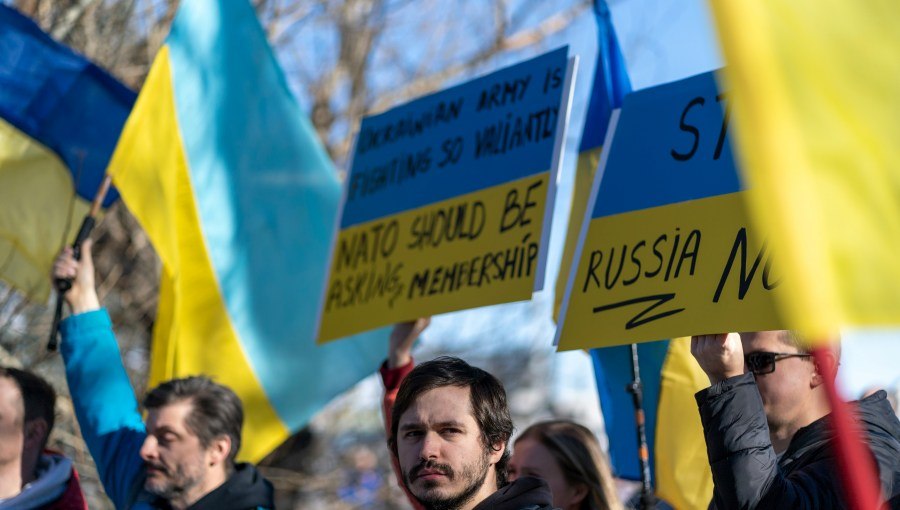Ireland After Brexit: a Lecture by Nobel Laureate Lord David Trimble
by Nastassja Biles and Flavia Loner
On Tuesday April 11, 2017, Lord David Trimble was a guest of the Guarini Institute for Public Affairs at John Cabot University. Lord Trimble, along with John Hume won the Nobel Peace Prize in 1998 for his contributions to the Good Friday Agreements. The Agreements helped resolve the violent conflict in Northern Ireland which had begun in the 1960’s and only ended 30 years later. The topic of the evening was “What Happens to Ireland after Brexit?”
Lord Trimble began his lecture by depicting the tumultuous political scenario in the wake of Brexit. If Scotland were to secede from the Union, the impact on Northern Ireland would be massive, and potentially destabilizing. The 2014 referendum for Scottish independence had early polls showing leads of 20 points for remain, yet the gap shrunk as the voting day approached. The independence referendum was unsuccessful because “Yes Scotland” and other campaign groups for independence were threatening people in order to get their vote. Many Scottish citizens were so shocked by this campaign that they made clear they did not want another referendum. Current First Minister of Scotland Nicola Sturgeon, of the Scottish National Party (SNP), wants to do a second referendum only if she is completely sure that “Yes” will win. Nevertheless, many people have already called for a second referendum after the Brexit decision. In any case, what happens in Scotland will affect what happens in Northern Ireland.
In the last elections, Sinn Féin, a political party dedicated to the reunification of Ireland and to end to British jurisdiction in the north of Ireland came close to being the largest party in Northern Ireland. It is currently the largest nationalist party in the Northern Ireland Assembly, with 27 seats, and second largest overall. Lord Trimble said that in his opinion Sinn Féin was happy with Brexit, as it gave them an opportunity to attack the United Kingdom.
Lord Trimble pointed out that Brexit is seen by many as an opportunity for nationalists to attack the British government. The biggest issue with Brexit is the question of EU tariffs, especially on agricultural products, which averages at 18%, over four times more than other goods. The UK made it quite clear it doesn’t want any type of tariff. Over 60% of the Republic of Ireland’s exports go to the UK, with the majority of the remaining 40% going to the US. If the EU puts tariffs on the UK, there is going to be a serious problem both for Ireland and the United Kingdom. On the one hand, the so-called Common Agricultural Policy (CAP) hurts farmers abroad. On the other hand, European farmers grow products that are heavily protected. Indeed, without tariffs, the EU would produce fewer agricultural goods. For instance, if you put no tariffs on Argentinian meat, it is going to be sold more than domestic Irish meat.
Regarding the future of Northern Ireland, Lord Trimble said that everything is speculative because it is too early to know what the European Commission is going to do, as they haven’t revealed their strategy yet. “We’re going to live, in the next year or two, through interesting times,” he concluded.






